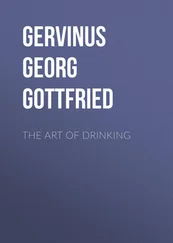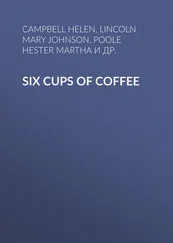And then there was Heidi. She was proud that she liked girls, she said when she reached the microphone. She loved them, wanted to sleep with them. She was a dyke, she said repeatedly, stabbing her finger to her chest in case anyone was unsure to whom she was referring. She could not have seen me. I was across the street, three stories up. And yet, when everyone clapped for her, she seemed to be looking straight at me.
HEIDI KNOCKED. “Let me in.”
It was like the first time I met her. The tears, the raw pink of her face.
We hadn’t spoken in weeks. Outside, pink-and-white blossoms hung from the Old Campus trees. Students played Hacky Sack in T-shirts and shorts. Though I was the one who’d broken away after she went up to that podium, I still half expected her to poke her head out a window in Linsly-Chit, or tap on my back in Harkness, or even join me in the Commons dining hall, where I’d asked for my dish-room shift to be transferred. She did none of these.
“Well,” I said, “what is it?”
She looked at me. “My mother,” she said.
She continued to cry, but seemed to have grown so silent in my room I wondered if I could hear the numbers change on my digital clock.
“When my parents were getting divorced,” she said, “my mother bought a car. A used one. An El Dorado. It was filthy. It looked like a huge crushed can coming up the street. She kept trying to clean it out. I mean—”
I nodded and tried to think what to say in the pause she left behind. Finally I said, “We had one of those,” though I was sure ours was an Impala.
She looked at me, eyes steely from trying not to cry. “Anyway, she’d drive me around in it and although she didn’t like me to eat in it, I always did. One day I was eating cantaloupe slices, spitting the seeds on the floor. Maybe a month later, I saw this little sprout, growing right up from the car floor. I just started laughing and she kept saying what, what? I was laughing and then I saw she was so—”
She didn’t finish. So what? So sad? So awful? Heidi looked at me with what seemed to be a renewed vigor. “We could have gotten a better car, eh?”
“It’s all right. It’s not a big deal,” I said.
Of course, that was the wrong thing to say. And I really didn’t mean it to sound the way it had come out.
I TOLD Dr. Raeburn about Heidi’s mother having cancer and how I’d said it wasn’t a big deal, though I’d wanted to say the opposite. I told Dr. Raeburn how I meant to tell Heidi that my mother had died, that I knew how one eventually accustoms oneself to the physical world’s lack of sympathy: the buses that are still running late, the kids who still play in the street, the clocks that won’t stop ticking for the person who’s gone.
“You’re pretending,” Dr. Raeburn said, not sage or professional, but a little shocked by the discovery, as if I’d been trying to hide a pack of his cigarettes behind my back.
“I’m pretending?” I shook my head. “All those years of psych grad,” I said. “And to tell me that ?”
“What I mean is that you construct stories about yourself and dish them out — one for you, one for you—” Here he reenacted this process, showing me handing out lies as if they were apples.
“Pretending. I believe the professional name for it might be denial,” I said. “Are you calling me gay?”
He pursed his lips noncommittally, then finally said, “No, Dina. I don’t think you’re gay.”
I checked his eyes. I couldn’t read them.
“No. Not at all,” he said, sounding as if he were telling a subtle joke. “But maybe you’ll finally understand.”
“Understand what?”
“Oh, just that constantly saying what one doesn’t mean accustoms the mouth to meaningless phrases.” His eyes narrowed. “Maybe you’ll understand that when you finally need to express something truly significant your mouth will revert to the insignificant nonsense it knows so well.” He looked at me, his hands sputtering in the air in a gesture of defeat. “Who knows?” he asked with a glib, psychiatric smile I’d never seen before. “Maybe it’s your survival mechanism. Black living in a white world.”
I heard him, but only vaguely. I’d hooked on to that one word, pretending. Dr. Raeburn would never realize that “pretending” was what had got me this far. I remembered the morning of my mother’s funeral. I’d been given milk to settle my stomach; I’d pretended it was coffee. I imagined I was drinking coffee elsewhere. Some Arabic-speaking country where the thick coffee served in little cups was so strong it could keep you awake for days.

HEIDI WANTED me to go with her to the funeral. She’d sent this message through the dean. “We’ll pay for your ticket to Vancouver,” the dean said.
These people wanted you to owe them for everything. “What about my return ticket?” I asked the dean. “Maybe the shrink will chip in for that.”
The dean looked at me as though I were an insect she’d like to squash. “We’ll pay for the whole thing. We might even pay for some lessons in manners.”
So I packed my suitcase and walked from my suicide single dorm to Heidi’s room. A thin wispy girl in ragged cutoffs and a shirt that read “LSBN!” answered the door. A group of short-haired girls in thick black leather jackets, bundled up despite the summer heat, encircled Heidi in a protective fairy ring. They looked at me critically, clearly wondering if Heidi was too fragile for my company.
“You’ve got our numbers,” one said, holding on to Heidi’s shoulder. “And Vancouver’s got a great gay community.”
“Oh, God,” I said. “She’s going to a funeral, not a Save the Dykes rally.”
One of the girls stepped in front of me.
“It’s O.K., Cynthia,” Heidi said. Then she ushered me into her bedroom and closed the door. A suitcase was on her bed, half packed.
“I could just uninvite you,” Heidi said. “How about that? You want that?” She folded a polka-dotted T-shirt that was wrong for any occasion and put it in her suitcase. “Why haven’t you talked to me?” she said, looking at the shirt instead of me. “Why haven’t you talked to me in two months?”
“I don’t know,” I said.
“ You don’t know ,” she said, each syllable steeped in sarcasm. “You don’t know. Well, I know. You thought I was going to try to sleep with you.”
“Try to? We slept together all winter!”
“If you call smelling your feet sleeping together, you’ve got a lot to learn.” She seemed thinner and meaner; every line of her body held me at bay.
“So tell me,” I said. “What can you show me that I need to learn?” But as soon as I said it I somehow knew she still hadn’t slept with anyone. “Am I supposed to come over there and sweep your enraged self into my arms?” I said. “Like in the movies? Is this the part where we’re both so mad we kiss each other?”
She shook her head and smiled weakly. “You don’t get it,” she said. “My mother is dead.” She closed her suitcase, clicking shut the old-fashioned locks. “My mother is dead,” she said again, this time reminding herself. She set her suitcase upright on the floor and sat on it. She looked like someone waiting for a train.
“Fine,” I said. “And she’s going to be dead for a long time.” Though it sounded stupid, I felt good saying it. As though I had my own locks to click shut.
HEIDI WENT to Vancouver for her mother’s funeral. I didn’t go with her. Instead, I went back to Baltimore and moved in with an aunt I barely knew. Every day was the same: I read and smoked outside my aunt’s apartment, studying the row of hair salons across the street, where girls in denim cutoffs and tank tops would troop in and come out hours later, a flash of neon nails, coifs the color and sheen of patent leather. And every day I imagined Heidi’s house in Vancouver. Her place would not be large, but it would be clean. Flowery shrubs would line the walks. The Canadian wind would whip us about like pennants. I’d be visiting her in some vague time in the future, deliberately vague, for people like me, who realign past events to suit themselves. In that future time, you always have a chance to catch the groceries before they fall; your words can always be rewound and erased, rewritten and revised.
Читать дальше













